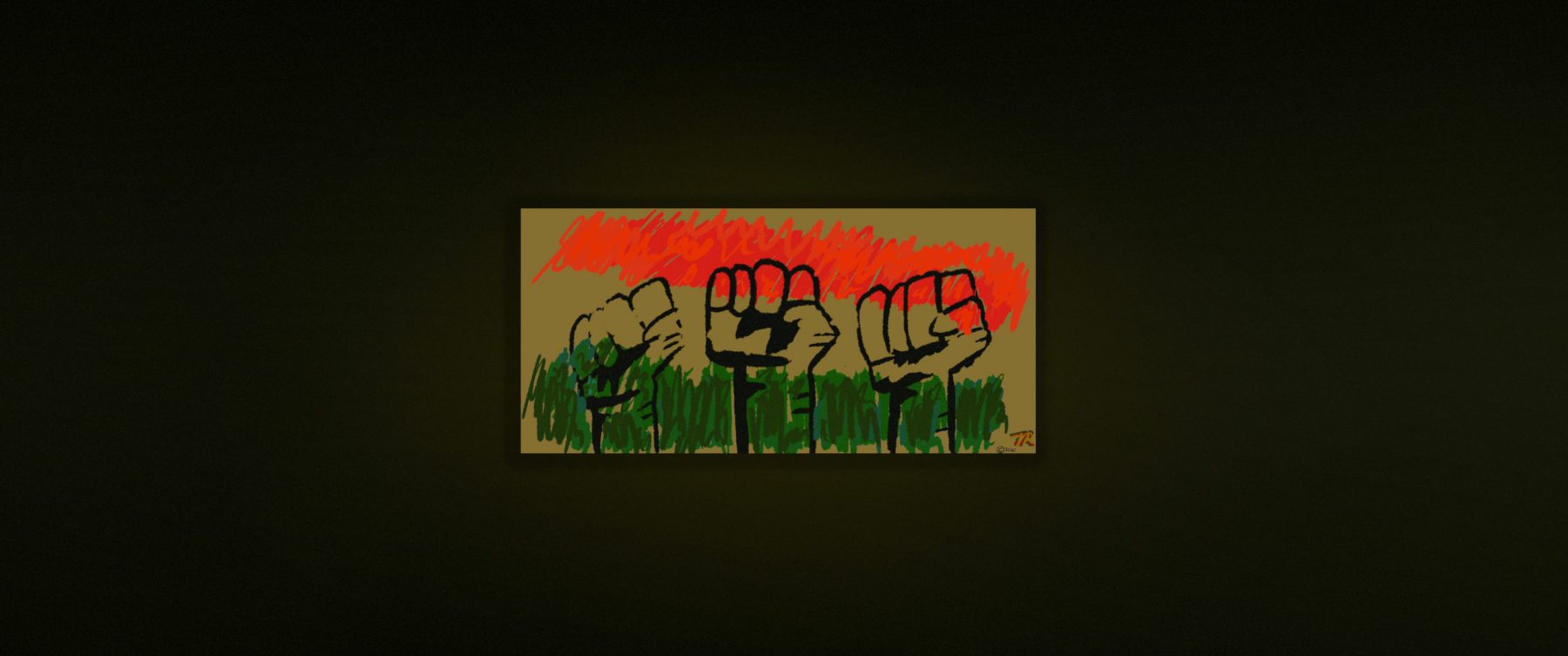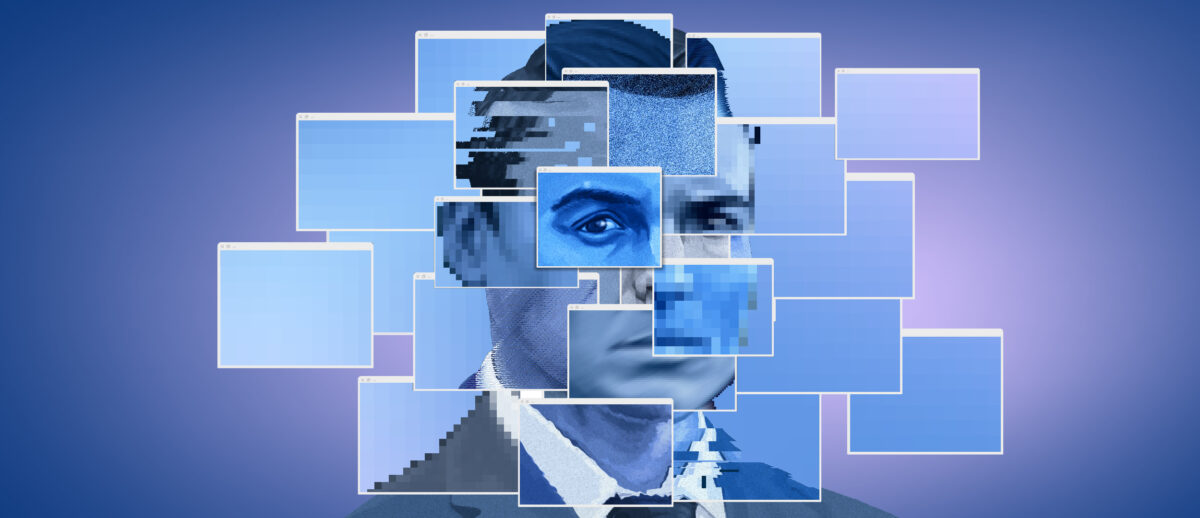“The potential of having this national holiday opens a whole world of discussion for America, a whole reckoning with racism and the systemic racism that permeates the nation.” — Texas Congresswoman Sheila Jackson Lee, D-Texas, who recently introduced a bill in Congress to designate Juneteenth as a federal holiday.
Last Friday, June 19, SJR joined a growing wave of companies that, for the first time, officially observed Juneteenth. Joining Spotify, Twitter, Ben & Jerry’s, Nike and many other U.S. businesses, we observed Juneteenth as a paid company holiday.
Also known as “Freedom Day,” Juneteenth commemorates June 19, 1865. It was on that day, 155 years ago, when enslaved people in Galveston, Texas, learned that the Civil War had ended and that they were free. The Union Army delivered the news a full two and a half years after President Lincoln’s Emancipation Proclamation.
Building upon our commitment to supporting racial justice and equality—and to standing with Black families and communities—we pledge to honor Juneteenth as a company holiday every year. Our aim: to encourage employees to pause on Juneteenth to reflect upon and celebrate Black history, culture and freedom—and to join the call for an end to racial injustice in America.
How We Celebrated Juneteenth
Here’s a snapshot of how some of our staff observed Juneteenth last week, in their own words and pictures:
Karla Pope
Brooklyn, NY
This Juneteenth, I was beyond grateful to have the day off to reflect on the memory of my late Aunt Pearl, who used to host “freedom parties” when I was growing up in Chicago.
During these festivities, we’d sing, dance, share stories and eat delicious food while donning garb similar to what our ancestors wore. I recall feeling a sense of joy, pride and happiness. Although my dear aunt passed away more than 20 years ago, I remember those gatherings fondly.
In addition to those parties, my aunt is responsible for making sure that I knew my rich history, which wasn’t always taught in textbooks. I know if she were alive today, she’d be so happy and delighted to see so many people honoring the holiday while embracing their heritage and culture.
To commemorate the day, my kids reread one of our Juneteenth books entitled “Juneteenth For Mazie.” We also went for an afternoon walk, where I treated them to their favorite food: pizza! For dessert, they ate cherry freeze pops in the backyard. Later in the evening, we watched ABC’s “Black-ish” Juneteenth episode.
Karla (right) and her beloved Aunt Pearl.
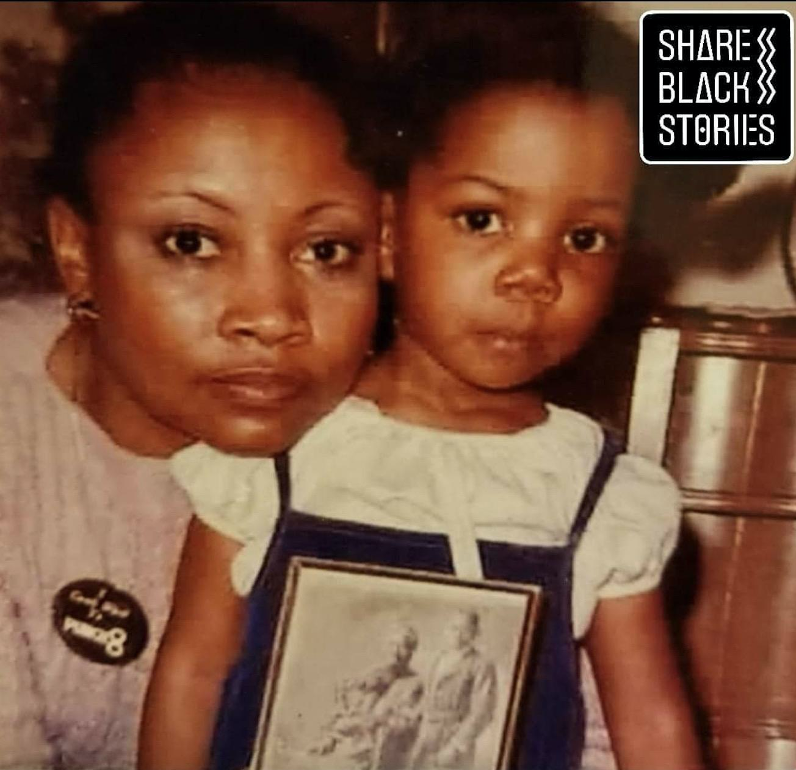
Karla’s son, MJ, reading “Juneteenth for Mazie.”
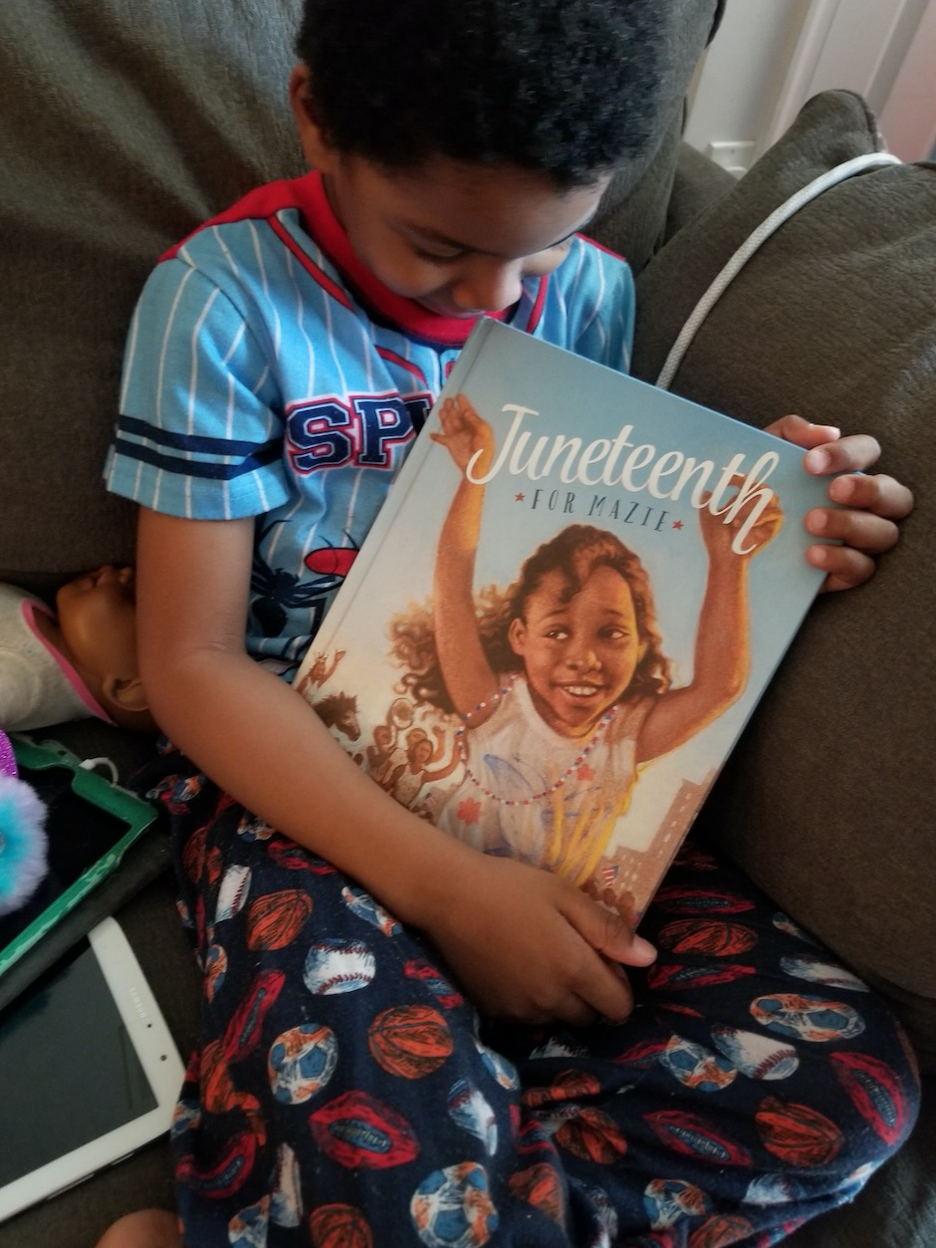
Christina Joseph Robinson
Montclair, NJ
Lift ev’ry voice and sing
‘Til earth and heaven ring
Ring with the harmonies of Liberty
Let our rejoicing rise
High as the list’ning skies
Let it resound loud as the rolling sea
Sing a song full of the faith that the dark past has taught us
Sing a song full of the hope that the present has brought us
Facing the rising sun of our new day begun
Let us march on ’til victory is won
—”Lift Every Voice and Sing” by James Weldon Johnson
When those enslaved African Americans in Galveston, Texas, learned they were free on June 19, 1865, they were jubilant. But they were also conscious that one singular act would not undo all the harm that had been inflicted upon them. Since then, Black people have used Juneteenth to gather together as family, educate each other about our culture, reflect on the past, and prepare for a better future. My goal was to implement something from each of those categories in our family on this day.
Our morning began with a walk around our neighborhood. It was a chance to take in nature, but also to bear witness to the cultural reckoning occurring right now. As we passed home after home, signs declaring “Black Lives Matter” dotted many lawns—a signal to my Black daughters that many in their community value their lives and stand with us in this struggle. My hope is that this allyship will ignite conversations about increasing diversity in certain academic programs and closing the achievement gap for Black students in our New Jersey town.
Later that morning, I watched an Axios livestream event with BET Founder Robert L. Johnson, former President Obama’s Senior Advisor Valerie Jarrett, Houston Mayor Sylvester Turner and Black Lives Matter activist DeRay Mckesson. It was a wide-ranging discussion that spanned the history of Juneteenth, policing in America and how to keep the momentum of this moment going. I realized that some of that starts with me. And that’s why I couldn’t let the day pass without casting my vote. As the Rev. Dr. Martin Luther King Jr. once said, “Voting is the foundation stone for political action.”
I then gathered my 8-year-old on my lap to watch a few kid-friendly videos about Juneteenth. Her older sister had a Juneteenth discussion during school, so we chatted about it and then I asked her to draw something that symbolized the day (see header image).
Admittedly, my daughters’ lives have not been filled with rallies and deep discussions on race like how I grew up. My mother, a civil rights activist and lawyer, carried me on her hip to every protest, Black cultural event and institution. In fact, my daughters didn’t have the lyrics of “Lift Every Voice and Sing,” by James Weldon Johnson, often referred to as the Black National Anthem, committed to memory. I’ve known it since before I could remember.
Well on Friday, they learned it.
My 12-year-old sang it, and my 8-year-old played it on the piano. And we pored over the lyrics as I explained what they meant. The symbolism of the last line in the chorus was not lost on them.
Let us march on ’til victory is won.
Yes, we are still marching. We are still standing. We are still speaking up. There is much work to be done.
Christina casting her vote on Juneteenth.
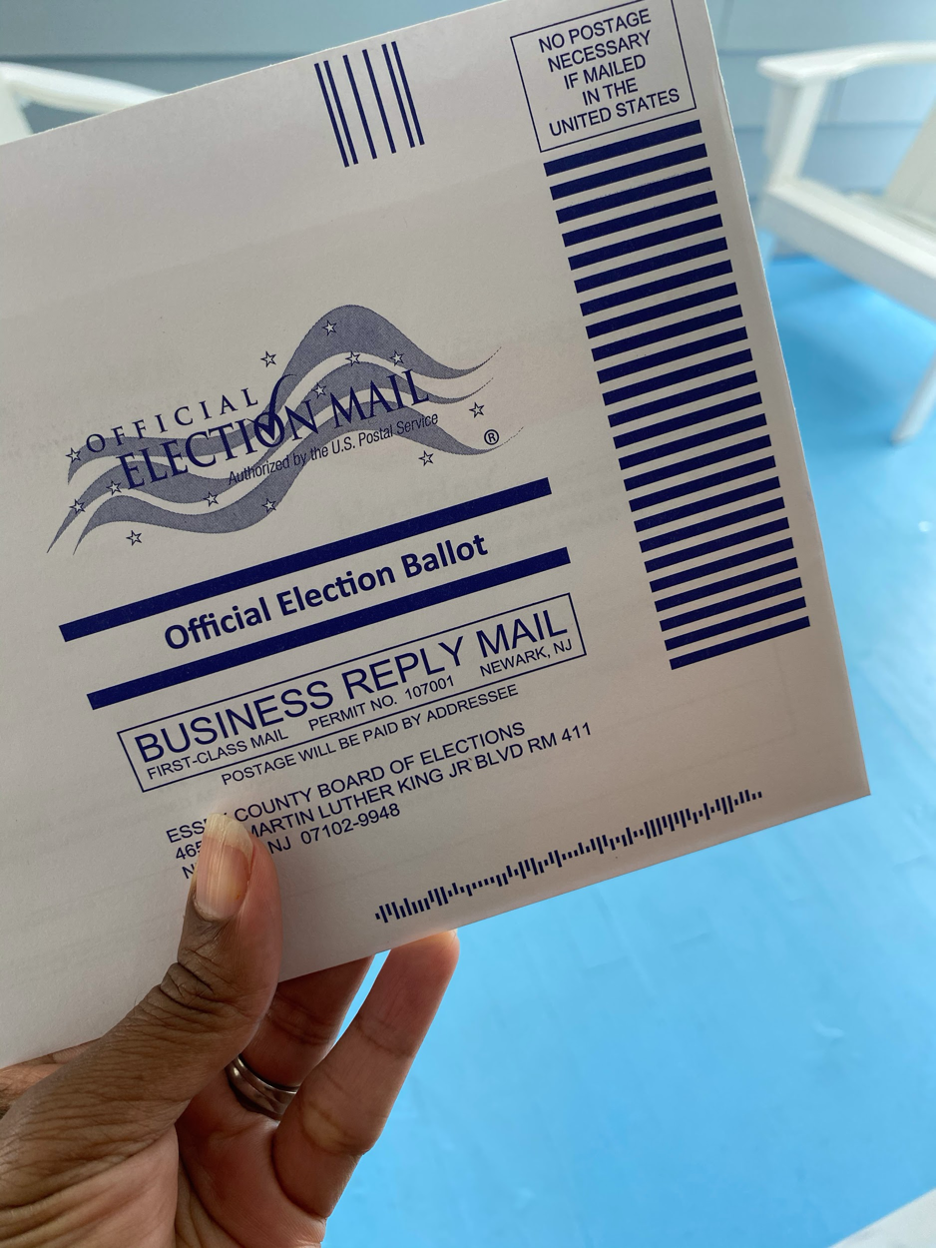
Christina’s daughters, Nina, 8, and Taylor, 12, learning “Lift Every Voice and Sing.”

Susanna Kim
Manhattan, NY
For Juneteenth, we decided to reread with our 4-year-old a children’s book, “My Name Is Truth: The Life of Sojourner Truth,” about the inspirational abolitionist and women’s rights activist.
There are many devastating consequences of anti-Blackness and racism. Working toward “better schools” for everyone is one of the things on my mind for Juneteenth as we enter the public school system in the fall.
In Harlem, there’s a school named after Sojourner Truth, where a large number of students come from low-income households (e.g., 98% of kids have free or reduced-price lunch). We wanted to support a teacher there who is fundraising for school supplies on DonorsChoose.org. Truth had the conviction of her faith to combat grave injustices. We hope to model that for our kids, including how we try to support a more just educational system.
Susanna’s son reading “My Name Is Truth” in honor of Juneteenth.
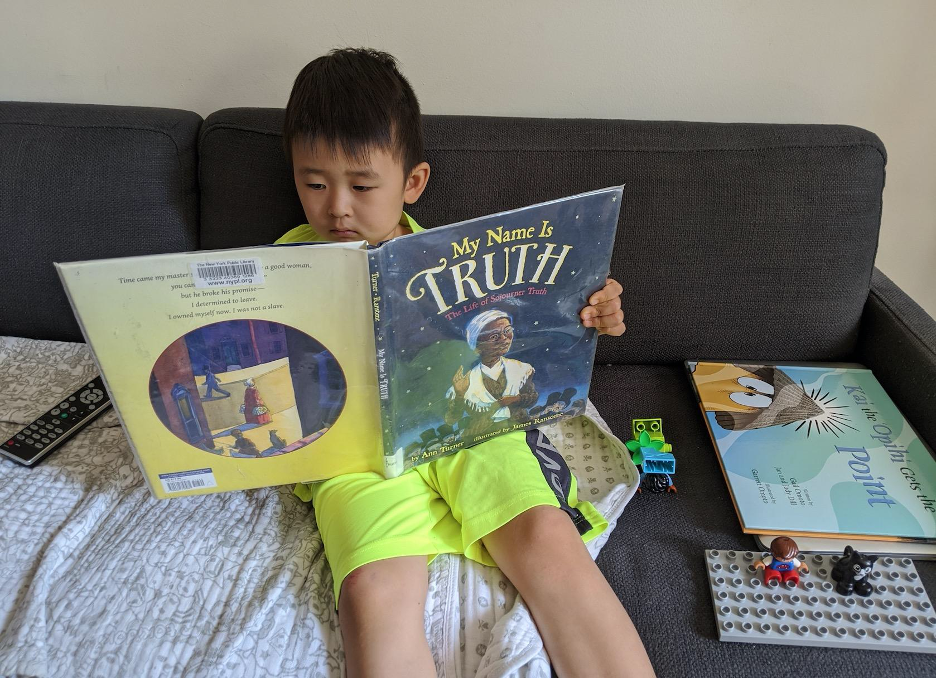
Alice Gomstyn
Glen Rock, NJ
I wanted to take my kids to an educational Juneteenth event, but I was having trouble finding one in my area, so I decided to create one. I bought a couple of recommended children’s books on Black history from my local bookstore (“Heart and Soul” and “Sing a Song”) and invited friends and neighbors to a socially distanced reading in our front yard.
It was nice to have a group of children there so that when I paused the reading to ask questions about what the kids understood, there were several raised hands to choose from. I know some of the material went above the younger children’s heads, but there’s always next year!
“Heart and Soul” and “Sing a Song,” the children’s books Alice selected for her front yard distanced reading on Juneteenth.
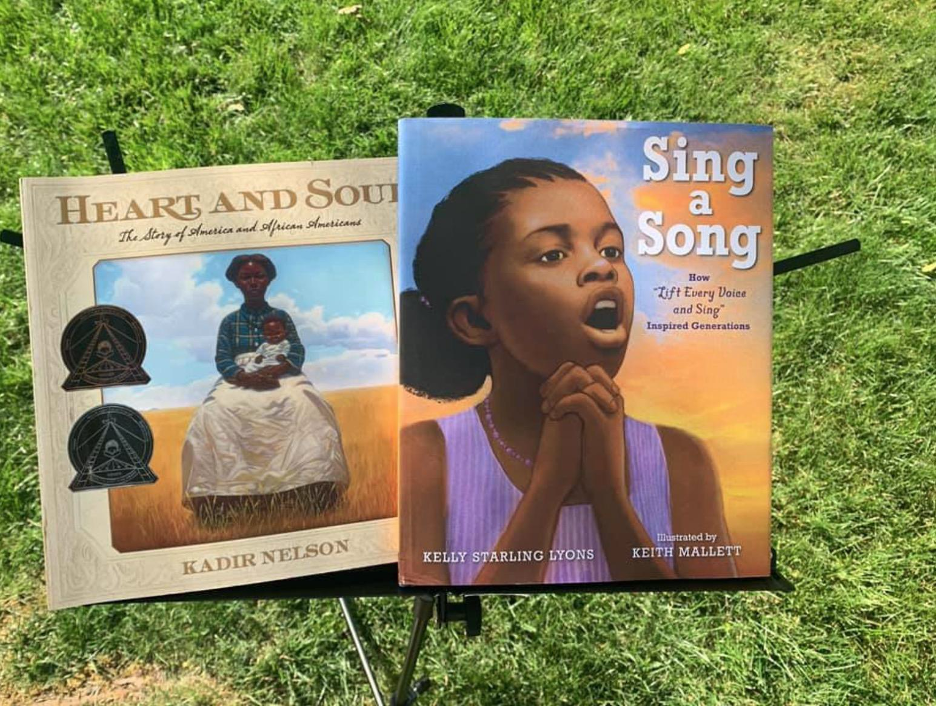
Friends and neighbors joined Alice in her front yard for a distanced reading in observance of Juneteenth.
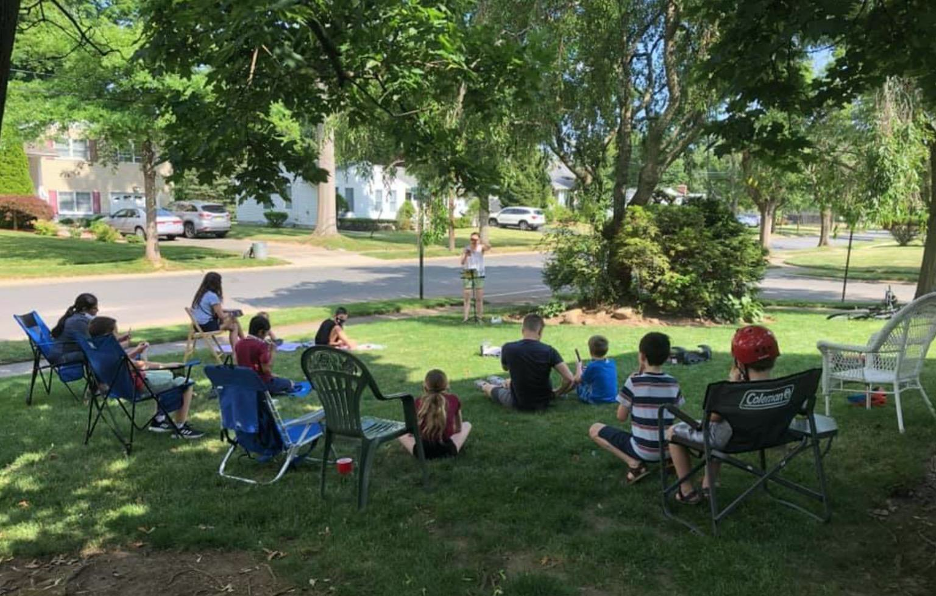
Kim Lachance Shandrow
Long Beach, CA
I observed Juneteenth by reading and posting about Ijeoma Oluo’s book “So You Want to Talk About Race,” in which she unflinchingly confronts white supremacy “from police brutality to the mass incarceration of Black Americans.” Oluo challenges readers to “get a little uncomfortable” and get willing to talk about—and take focused, strategic action to end—racial inequality and injustice.
While directly calling out individual racism is a start—and, yes, 100% necessary—it’s only the beginning, she reminds us.
“We can get every person in America to feel nothing but love for people of color in their hearts,” Oluo says, “and if our systems aren’t acknowledged and changed, it will bring negligible benefit to the lives of people of color.” Please consider reading this eye-opening book to help identify actionable steps you can take in creating “real change in the fight against racial oppression.”
Kim’s copy of “So You Want to Talk About Race.”
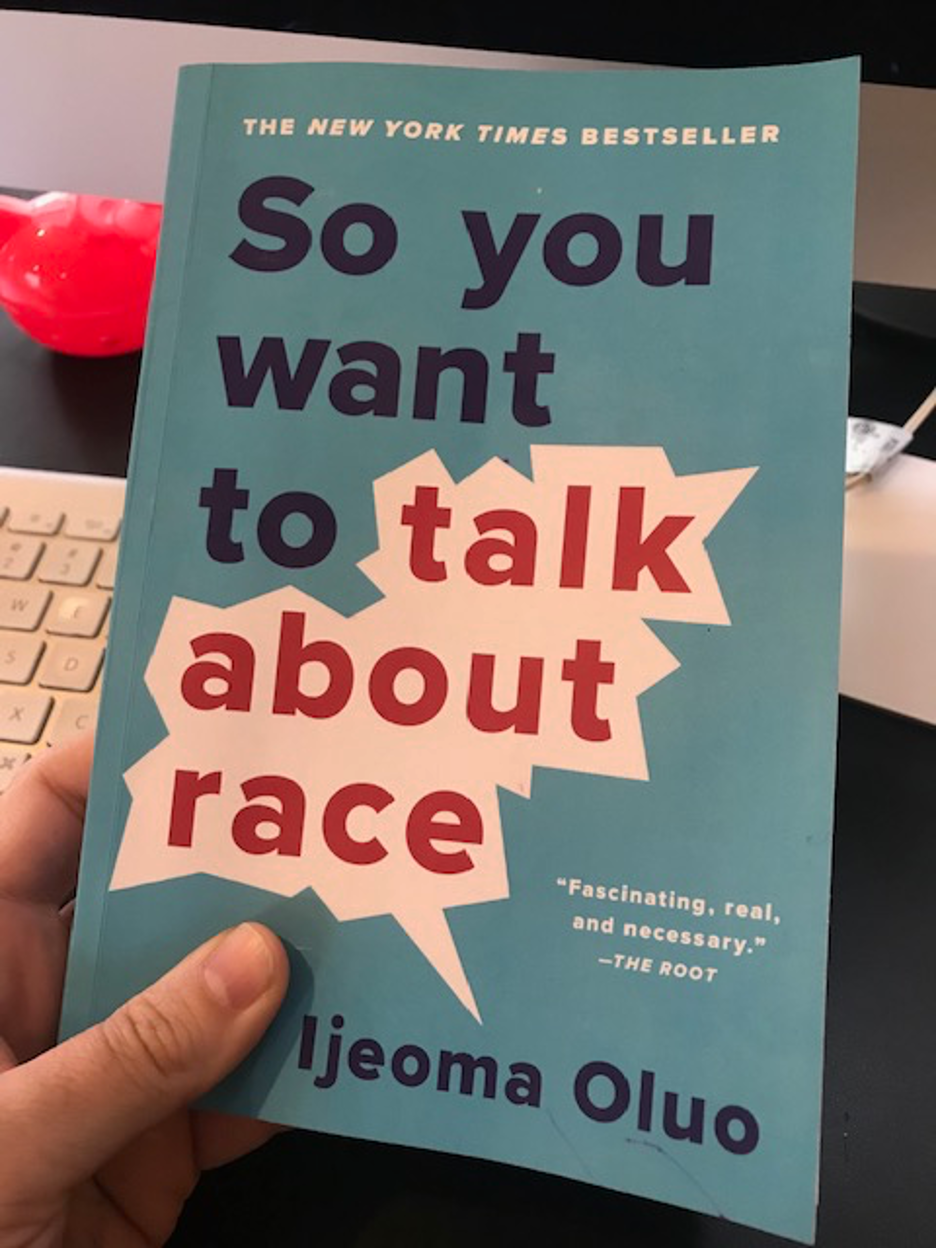
* Header image by Taylor Robinson
